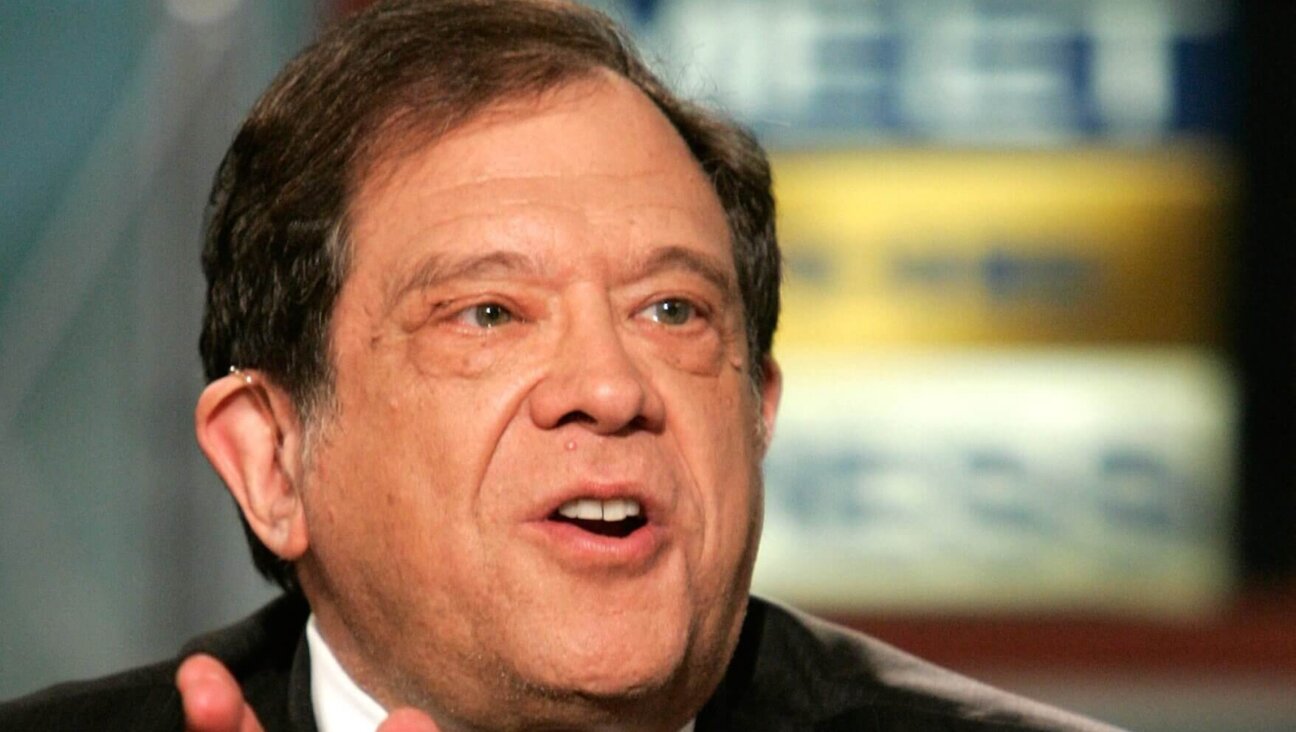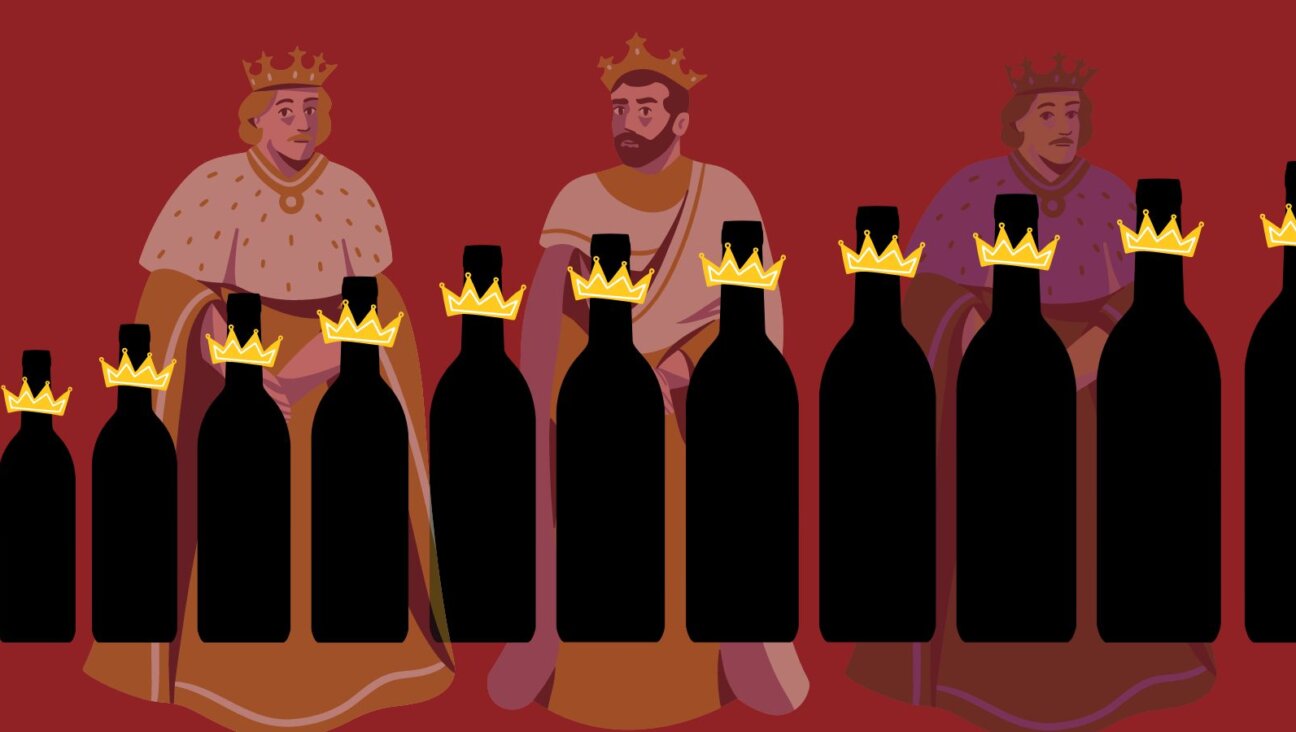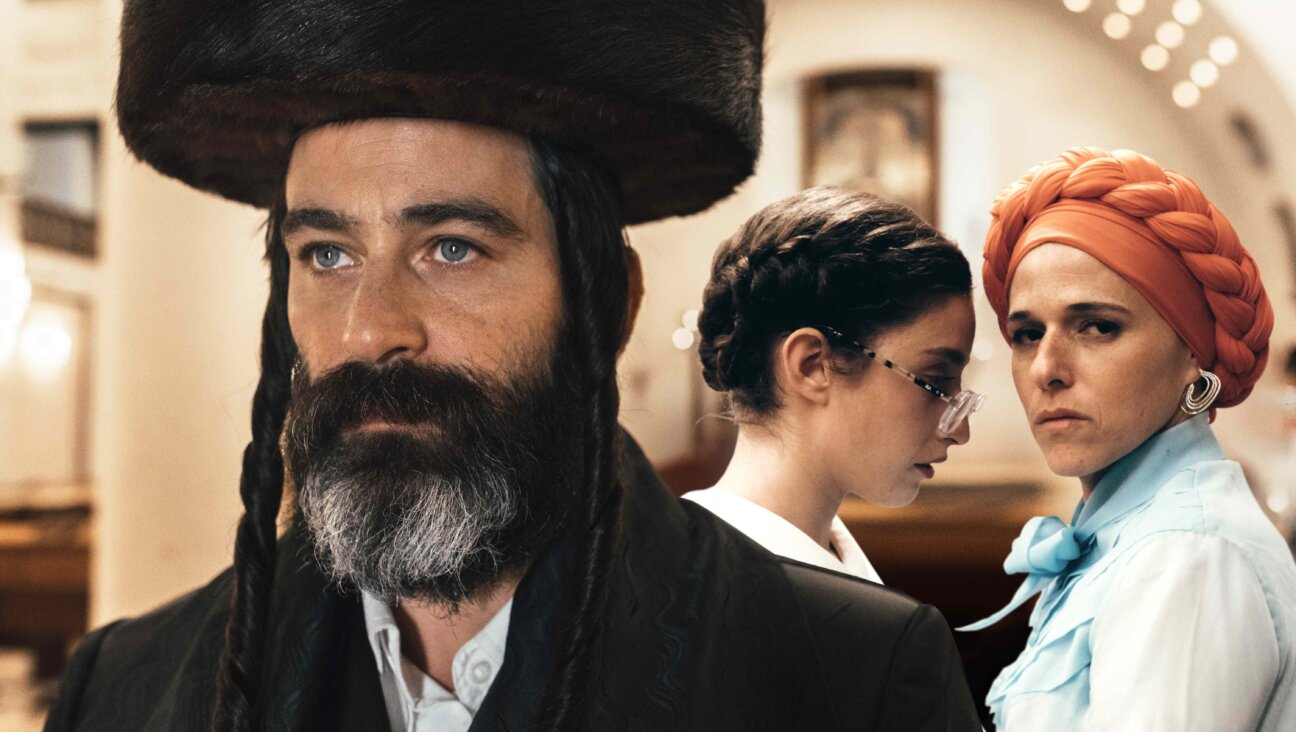Notes From the Edge
On Broadway, late summer is known as the off-season. But in the downtown theater world, life begins in August. Every year at this time, the kaleidoscopic burst of creativity known as the New York International Fringe Festival lights up Lower Manhattan. Now in its 10th year, North America’s largest multi-arts festival hosts hundreds of performances that range from traditional drama to experimental dance, from Dadaist puppetry to alternative standup. Though performances ended last month, reverberations from the fringe will continue to be felt. After launching downtown, some of the more successful shows invariably transfer to new venues and enjoy longer runs.
With so many different cultures and perspectives represented, it’s hardly surprising to find a Jewish contingent. Previous festivals have featured everything from autobiographical meditations on growing up Jewish to a new English translation of the Yiddish classic “Bronx Express.” This year, Jewish subject matter ranges from the historic to the contemporary.
“The Unlucky Man in the Yellow Cap” is a musical adaptation of survivor J.R. Pick’s memoir of life in Hitler’s “model ghetto” at Theresienstadt. In “The Rabbi and the Cheerleader,” former Raiderette Sandy Wolshin tells of how she healed a crippling loneliness by converting to Orthodox Judaism. And Alan Ostroff’s “Tradition” follows the exploits of a struggling actor whose career troubles are nothing compared with the ordeal of trying to persuade his parents to accept his gentile fiancee. While all three shows exhibit talent and ambition, each is in need of further development. This in itself is a strength of the Fringe rather than a weakness. Although audiences often hope to happen across a ready-for-prime-time hit in the making, it’s important to remember that the festival circuit is also an effective testing ground for works in progress.
Two of the more polished pieces reinvent the classic archetype of the lovingly meddlesome Jewish mother. Monica Yudovich’s “Hermanas” offers a colorful glimpse of a community seldom represented onstage. The members of the Hermán family are Mexican American Jews living in Texas, where young Lisette (Yudovich) is attempting to establish her independence. It’s no easy task when her adventurous big sister, Claudia (Adriana Gaviria), returns from New York and rekindles old sibling rivalries. To make matters worse, matriarch Telma (Kathryn Kates) has a habit of popping by Lisette’s place unannounced, and usually at the worst possible time. Speaking a lively amalgam of English, Yiddish and Spanish, Telma has something to say about everything from Lisette’s laundry to her taste in men. The three core players are entirely believable as a family and extremely deft at producing laughs without sacrificing authenticity. They are abetted by director Claudia Zelevansky and by a top-notch comic ensemble that includes Bridget Moloney as Lisette’s twangy Anglo best friend, Paolo Andino as her brainless but mother-approved boyfriend, Denise Quiñones (a former Miss Universe) as a maddeningly pretty neighbor and Ryan Duncan as an overachieving doctor who may not be as Jewish (or as straight) as the girls assume. Yudovich’s script is as full of twists and achingly funny one-liners as it is packed with ethnic flavor, and it also delivers a poignant message about turning toward, rather than away from, family in the search for self-definition.
Now playing in encore performances until September 21, Marc Goldsmith’s New York-based “Danny Boy” also depicts Mom (Joan Proust) as a protecting/controlling influence in the life of the protagonist. In many ways, Danny Bloch (Stephen Jutras) is a pretty regular guy. He’s shy around girls, holds down a decent clerical job and remains close to Gabe (Troy Hall), his slacker best buddy from grade school. In one respect, though, Danny isn’t average at all. He’s a “little person,” about 4 feet tall. Danny’s dating life is inevitably complicated by his stature, but Gabe and his caustic girlfriend, Dori (Deshja Driggs-Hall), are eager to help. Much to his own amazement, Danny succeeds in seducing Alison (Sarah Schoenberg), a hottie from the office. Their relationship ignites with kinky role-play games (in one particularly funny sequence, Danny’s mother barges in to find Alison decked out in a provocative French maid’s uniform, then starts trying to determine if she’s Jewish). But as Alison’s feelings deepen, Danny continues to grapple with a negative self-image. Torn between the unknown risks of romance and the security of family and friends, Danny Boy must become man enough to make the right decision. Under Christopher Goodrich’s direction, the cast expertly brings out the more somber notes, as well as the comic beats, of Goldsmith’s taut script. Though the playwright doesn’t oversell the metaphor, Jewish audiences are likely to empathize with Danny’s struggle to simultaneously stand out and blend in with the world around him.
The force majeure of this year’s festival is Iranian American Negin Farsad, whose one-woman show “Bootleg Islam” won acclaim at the 2004 Fringe. Skilled as a writer, director and performer, she has three shows running in which she participated, all comedies concerning the Middle East. In the musical “The Israeli-Palestinian Conflict: A Romantic Comedy,” Farsad showcases her versatility as an actor, as well as her gift for razor-sharp satirical writing. Co-written by Alex Zalben, this brisk series of sketches re-imagines Israel and Palestine as a troubled but passionate couple. Despite its irreverence, the shtick never seems insensitive to the real horrors of the Middle East peace process (chiefly because the real butt of the humor is American pop culture). In the heady atmosphere of the Geneva Convention, two idealistic youths have a chance encounter: Suha (Farsad), a delegate from Palestine, and Daniel (John Flynn), who represents the newly formed state of Jewlandia (“It’s a working title,” he explains). Already there’s a territorial issue, as the two have been mistakenly assigned the same seat. Their proximity leads to intimacy, and a tryst ensues, but outside pressures cause the couple to experience repeated breakups and reconciliations through the years. Farsad and Flynn transform into a panoply of characters, including whiny roommates, dueling rappers and futuristic Hollywood moguls. Finally, the Oslo Accords lead to a happy ending in which “Palestine and Israel never fought again.”
One of Farsad’s other plays, “Romancing the Terrorist: Tajiki Nights,” ends similarly, with heads of state literally deciding to make love, not war. At each show, a headline-weary audience found plenty to scoff at in the image of nations living “happily ever after.” Yet, in their own iconoclastic way, Zalben and Farsad seem to share a belief with their fellow Fringe participants. Relationships, be they international or interpersonal, are difficult — even dehumanizing at times — but not impossible.
Ethan Kanfer is a playwright and theater critic living in New York City. His play “Pillow Scars” premiered at the 2002 New York International Fringe Festival.

I hope you appreciated this article. Before you go, I’d like to ask you to please support the Forward’s award-winning journalism this Passover.
In this age of misinformation, our work is needed like never before. We report on the news that matters most to American Jews, driven by truth, not ideology.
At a time when newsrooms are closing or cutting back, the Forward has removed its paywall. That means for the first time in our 126-year history, Forward journalism is free to everyone, everywhere. With an ongoing war, rising antisemitism, and a flood of disinformation that may affect the upcoming election, we believe that free and open access to Jewish journalism is imperative.
Readers like you make it all possible. Right now, we’re in the middle of our Passover Pledge Drive and we need 500 people to step up and make a gift to sustain our trustworthy, independent journalism.
Make a gift of any size and become a Forward member today. You’ll support our mission to tell the American Jewish story fully and fairly.
— Rachel Fishman Feddersen, Publisher and CEO
Join our mission to tell the Jewish story fully and fairly.
Our Goal: 500 gifts during our Passover Pledge Drive!























